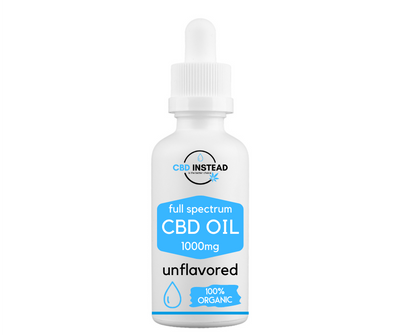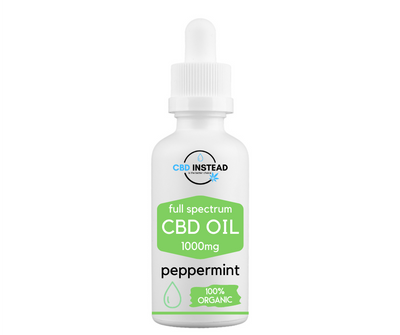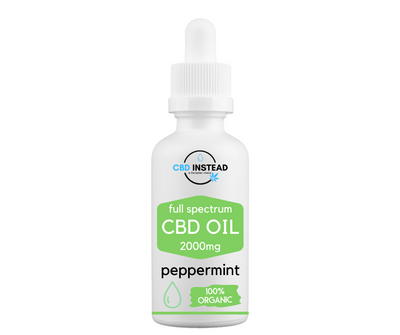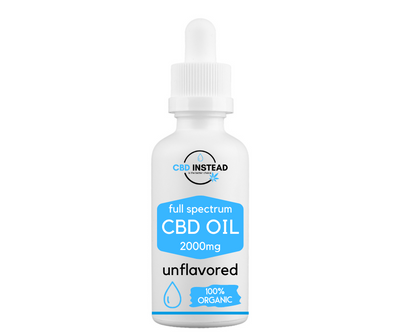Mental health and physical health go hand in hand. When one is suffering, the other is sure to follow. Depression is no fun in the mind to begin with, and it can also cause you health issues involved with the rest of your body. The funny thing about depression is that it can make you not care about getting better, but these health risks in addition to symptoms of depression may be some good motivation to get some help.

What Is Depression
We have all heard someone say that they feel depressed. Whether it is because a loved one died or someone’s favorite show got canceled. But depression is more than just being utterly bummed out; depression is a mental illness that involves changes in the brain that make everyday life difficult.
We used to believe that depression was just your brain not producing the chemicals needed to function properly. But studies have shown that depression may be more than that. In a world filled with pathogens, scientists believe that our body has an inflammatory bias because of a genetic component that is becoming more prevalent in today’s society. This inflammatory response is what they believe causes depression.
A common thing I think about is how mental illnesses are like bad superpowers. Someone with social anxiety is exceptionally perceptive, yet this perceptiveness causes them to be fearful of the world around them. Someone with BPD can feel as if they actually feel others emotions for their heightened feelings and ability to read a room like no other, but their emotions are so out of control they can take over. When you have depression, scientists believe that you have successfully made it through the gene pool, and your body strives to keep the host, you, alive. But at the same time, the inflammation causes an illness that makes you wonder if it is worth it to keep on living.
Symptoms Of Depression
- Feelings of intense sadness or emptiness
- Feelings of anxiety
- Feeling helpless, worthless, or guilty
- Feeling hopeless and pessimistic
- Thoughts of suicide
- Change in eating behavior
- Change in sleep patterns
- Trouble concentrating
- Feeling irritable
- Losing interest in activities you once loved
- Aches and pains
How Depression Affects The Body
While we know that depression can cause a whole bunch of different problems in the mind, what some of us forget is that it bleeds over into our physical health as well. This can cause a vicious cycle of physical health getting worse, followed by mental health getting worse, followed by physical health getting worse and so on.
Weight Changes
Depression can cause you to lose or gain weight at an alarming rate toward a weight that can cause health complications. Research shows that depression affects people differently, with some having a strong reaction to food and others who don’t.
Sometimes people with depression can’t bring themselves to eat. Something as simple as having to prepare a meal seems so exhausting they would rather go without. The symptoms of lack of pleasure can make the work of eating seem like a waste since you don’t feel the reward. This shows true in the study, showing that people who have a loss of appetite don’t have a reward reaction when presented with food.
The feeling of how food reacts with your reward system can have the opposite effect and give you comfort making you eat every time you are upset which may be often. Many times people confuse emotional eating with satiating hunger when this is not the case. In the study, it showed that people who had an increase in appetite had a strong reaction in their brain when presented food.
Pain
People who have depression may start to experience unexplainable aches and pains in their body. This can be muscle pain, headaches, joint pain, and tenderness in areas. People who experience chronic pain can also develop depression. The link between depression and pain is because both use the same signaling pathways, neurotransmitters, and brain structures.

Heart Disease
Chronic stressors can make cardiovascular disease more likely to develop. One of the symptoms of depression is feeling irritable or anxious, which can contribute to having constant stress in your life. Depression as also been linked to coronary heart disease and stroke. Scientists haven’t found why this link exists, but they do have some theories.
One of the leading theories is that when someone is depressed, they may lose motivation to practice a healthy lifestyle. This means they aren’t eating healthy, exercising regularly, or sleeping well. When it comes to comfort eating, many people turn to foods that aren’t good for the body without balancing it out with nutritional meals.
Inflammation
Studies have shown that people with depression or anxiety are more likely to have issues with inflammation than those without depression. Chronic stress and depression have been linked to inflammation and changes in the immune system, and it might be because of the bad superpower mentioned earlier. Because our bodies are thriving in a pathogen-filled world, scientists believe that we have evolved into inflammatory bias making people with depression more prone to inflammation.
Changes In Sleep
About three-quarters of people who suffer from depression also have insomnia. If you aren’t getting enough sleep, your body isn’t going through the process that helps repair cells to keep you in tip-top shape. Not getting enough sleep can also cause you to become moody, weaken your immune system, gain weight, elevate your risk of heart disease and diabetes, and disrupt your cognitive functions.
Getting Depression Under Control
If you don’t take care of yourself and work to treat your depression and all of the symptoms, it can start to wear your body down. There are several different ways you can go about managing your depression, but so far the best equation that yields the most success is coupling therapy and medication.
Researchers are starting to advise that doctors not only take into account the chemical imbalance that is depression but to use anti-inflammatory properties in medicine for treatment as well. Unfortunately, depression medication can take a while to start working. For some medications, it can take over a month. But new research about using medical cannabis shows that it may be able to not only tackle many of the symptoms but also work quickly.
Not everyone lives in a place where THC full plant medical marijuana is an option. Not everyone wants to use THC because it can make the user high, like with the elderly or children. CBD oil is becoming extremely popular in all aspects of health, including with people who have depression.
What Is CBD?
Cannabidiol (CBD) is a chemical that comes from the cannabis plant. This chemical is found both in cannabis that contains THC, as well as hemp plants that have untraceable amounts of THC. At CBD instead, we provide an option of products made from the hemp plant to ensure that people in all 50 states can benefit from medical cannabis.
How Does CBD Work?
CBD doesn’t directly bind to the cannabinoid receptors in your brain like THC does, this is why it doesn’t get you high. Instead, CBD hemp oil elevates chemicals that already exist within your brain called endocannabinoids. These chemicals bind to cannabinoid receptors and help mediate your endocannabinoid system, which is the system in your body that makes sure your body is balanced and working efficiently.
Endocannabinoids And Cannabinoid Receptors
We know of two cannabinoid receptors, and possibly a third, that are all over your body. The CB1 receptor is mainly located in the brain, though it is found all over the body, and your CB2 receptors are spread evenly throughout.
The endocannabinoids, anandamide and 2-ag, bind to both receptors. But they only have a strong bond with one receptor. Anandamide has a strong bond with the CB1 receptor, which helps mediate neurological functions like mood, appetite, sleep, and pain. The 2-AG endocannabinoid primarily binds with the CB2 receptor which helps regulate immune functions.
CBD For Depression
Recent studies revealed this year that CBD might be able to interact with a depressed brain quickly. In the study, they tested rodent models with CBD oil. In just thirty minutes, the rodent models were experiencing antidepressant effects.
But there is more to CBD than this. Not only may it tackle the underlying causes of depression by elevating chemicals that are usually lacking in depressed brains, but CBD hemp oil may also have the ability to address other symptoms and reduce the risk of disease that is associated with depression.

CBD For Weight Change
Cannabidiol may be able to help both sides of this coin. Cannabidiol is being known in the scientific community as being a regulator. They notice in many studies that it doesn’t affect the healthy participants in the same way it does with people who are ill.
Because anandamide binds to the CB1 receptor, elevating it helps to regulate neurological functions like your appetite. If you are underweight, you may be able to start gaining weight with CBD. For those of you who have become overweight, CBD oil may be able to help regulate your appetite so you can begin to lose weight.
CBD For Pain
You feel pain because your brain tells you to. Thanks, brain. But when CBD elevates anandamide, it may be able to help reduce your sensitivity to pain. By binding to the CB1 receptor, anandamide is able to tell the cell to stop sending out so many pain signals granting relief.
CBD For Heart Disease
Studies have shown that there are at least three big ways CBD may be able to help prevent or manage heart disease. CBD oil may be able to help with arrhythmias, which is when you heart isn’t beating the way it should. It also lowers blood pressure and may be able to help with inflammation of the heart.
CBD For Inflammation
Mentioned above, CBD helps with inflammation of the heart. This isn’t the only place it can help with inflammation though. Because your body is covered with CB2 receptors, CBD may be able to reach anywhere in your body to control inflammation, including the brain. When CBD elevates the 2-AG endocannabinoid, 2-AG binds to the CB2 receptor telling the cell to stop sending out so many attack cells reducing inflammation.
CBD For Sleep
If you aren’t getting a restful night’s sleep, you might be having disturbed sleep which makes it harder for your body to reach the REM stage. In this stage, your body is working hard to recover from a hard day. Without REM, our bodies would wear down a lot faster. CBD has shown that it may be able to help with sleep by regulating your sleep-wake cycle as well as promoting the REM stage of sleep.
Talk To Your Doctor
If you have depression, keep in touch with your doctor. If you don’t have one, now is the time. They can help determine how severe your depression is as well as help monitor the symptoms. They can also help decide what medication route is best for you. If you want to try CBD, going in well informed will be the best way to go about it. With the go-ahead from your doctor, stop by our shop and check out what products we have that would benefit you the most!





















